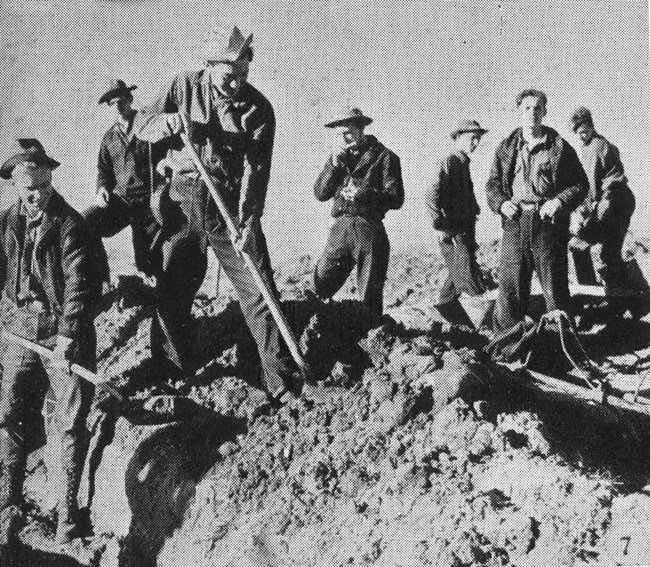Another Revisiting of the CCC

Last summer, I wrote a bit on the white nostalgia at the heart of the constant call to revive the Civilian Conservation Corps. We are now seeing this again, with Biden signing an executive order to create the new CCC–the Climate Conservation Corps.
One of the most popular programs from the New Deal is making a comeback, nearly 90 years later.
President Joe Biden recently signed an executive order to create a Civilian Climate Corps. The initiative, he wrote, will provide “good jobs” for young people and train them for environmentally friendly careers, putting them to work restoring public lands and waters, planting trees, improving access to parks, and of course, tackling climate change.
It’s inspired by the original Civilian Conservation Corps, one of President Franklin D. Roosevelt’s signature New Deal programs launched to take on the Great Depression.
Climate advocates celebrated Biden’s move. Naomi Klein, the activist and author of This Changes Everything, said Biden’s announcement was a “hard won victory.” Representative Alexandria Ocasio-Cortez of New York had reportedly sold Secretary of State John Kerry on the idea of a climate corps. The resemblance to the New Deal program — it even has the same acronym, CCC — may explain why the proposal sounds like part of a Green New Deal.
“The Green New Deal is all about a jobs and justice approach to climate policies, so I think that the new climate corps proposal really encapsulates that,” said Danielle Deiseroth, a climate analyst at Data for Progress, a progressive think tank. Not that you’ll hear Biden saying much about a Green New Deal, since commentators on Fox News have turned the slogan into a synonym for “socialist plot that’ll take away your hamburgers.”
This is fine I guess, though what we really need is a Green WPA. But it is worth noting once again that sending the poor into rural areas is not some halcyon path to national glory. It’s a deeply tense situation fraught with terrible working conditions and significant racial tension. After all, it’s not as if the this is the first revival of the CCC. As Jeff Sanders demonstrates so effectively in his new book on childhood in the postwar West, the Youth Conservation Corps taking Black kids out of Watts and sending them to rural Idaho led to, as you might expect, open racism when they went to town in places like Lewiston, where they were not allowed into stores or clubs. It led to horrific living conditions in dilapidated camps where the kids would steal a car just to get the hell out of there and back to L.A. It’s not as if the people behind this new CCC are completely unaware of the history.
Of course, a government program from the 1930s isn’t going to be the perfect model for today. One big one issue with the CCC, and other New Deal programs, was discrimination. About a tenth of CCC volunteers were Black, and while camps outside the South were originally integrated, officials ended up caving to racist pressure and segregating them into separate work sites. On top of that, only men could join. Eleanor Roosevelt kept pushing her husband to allow women into the corps — and eventually, a sister organization was formed. But the “She-She-She Camps,” as they were called, were a much smaller operation.
A reenvisioned version of the CCC, Maher said, would “obviously have to be open to all people, regardless of age, gender, skin color, sexual orientation, and all that.” The Civilian Climate Corps could be about more than conserving public lands, expanding its focus to other pressing problems, like cleaning up polluted towns. In his executive order, Biden declared that the corps should “bolster community resilience” and “address the changing climate.”
That is Neil Maher being quoted, author of the excellent history of the CCC, Nature’s New Deal. You definitely want to read that book. What I do hope though is that a hazy nostalgia for white guys working in the woods doesn’t lead policymakers to ignore how these works programs can be racially problematic not only in hiring, which is the remembered racial history of them, but in dealing with racist reactionaries where they might be sent.
Of course, this is all a bit aspirational now. An executive order of this nature doesn’t mean a whole heck of a lot on its own. And perhaps I am too sensitive to these issues and thus get a bit overwrought about it. But it’s important to move away from hazy nostalgia and toward remembering the more useful historical comparisons here, including the YCC.


